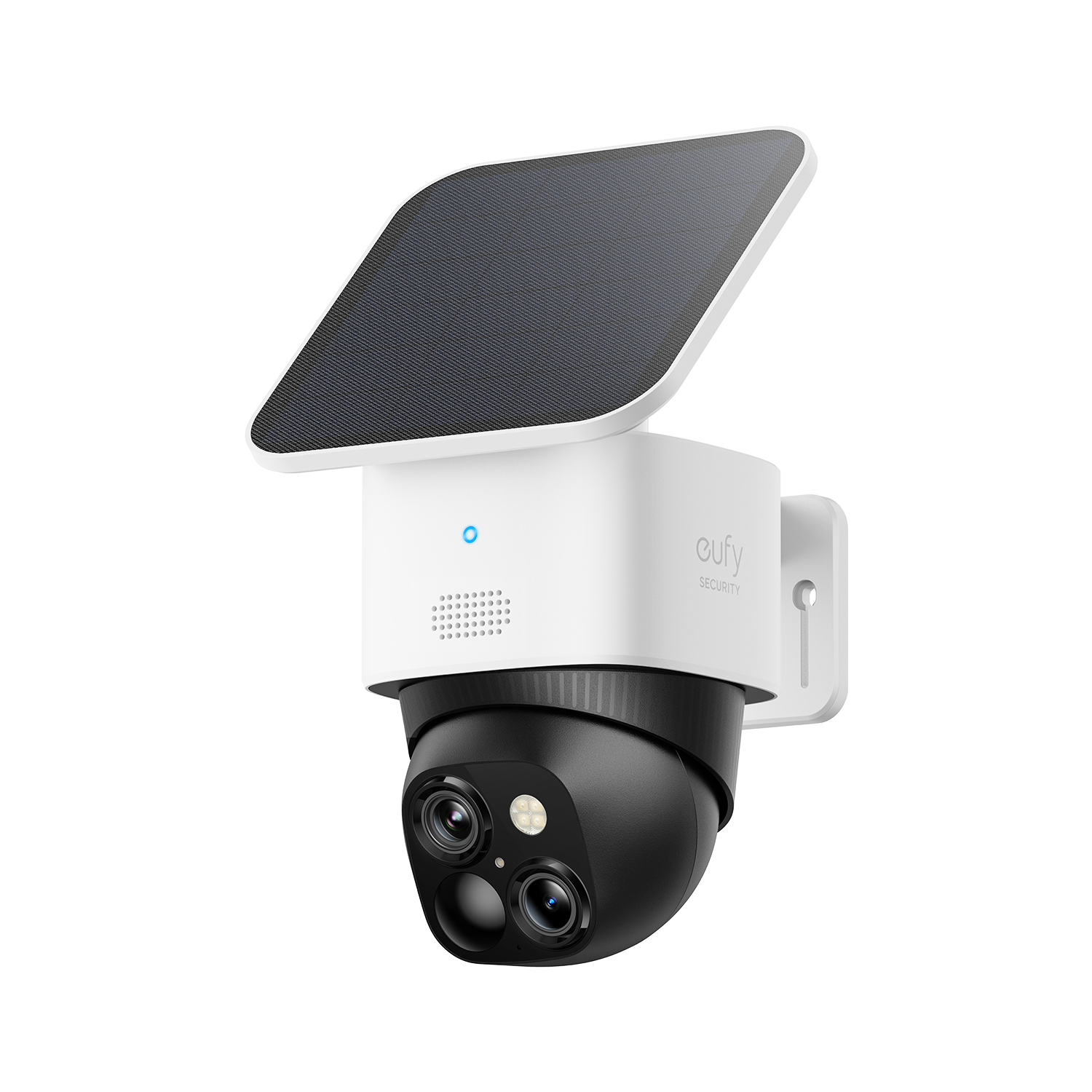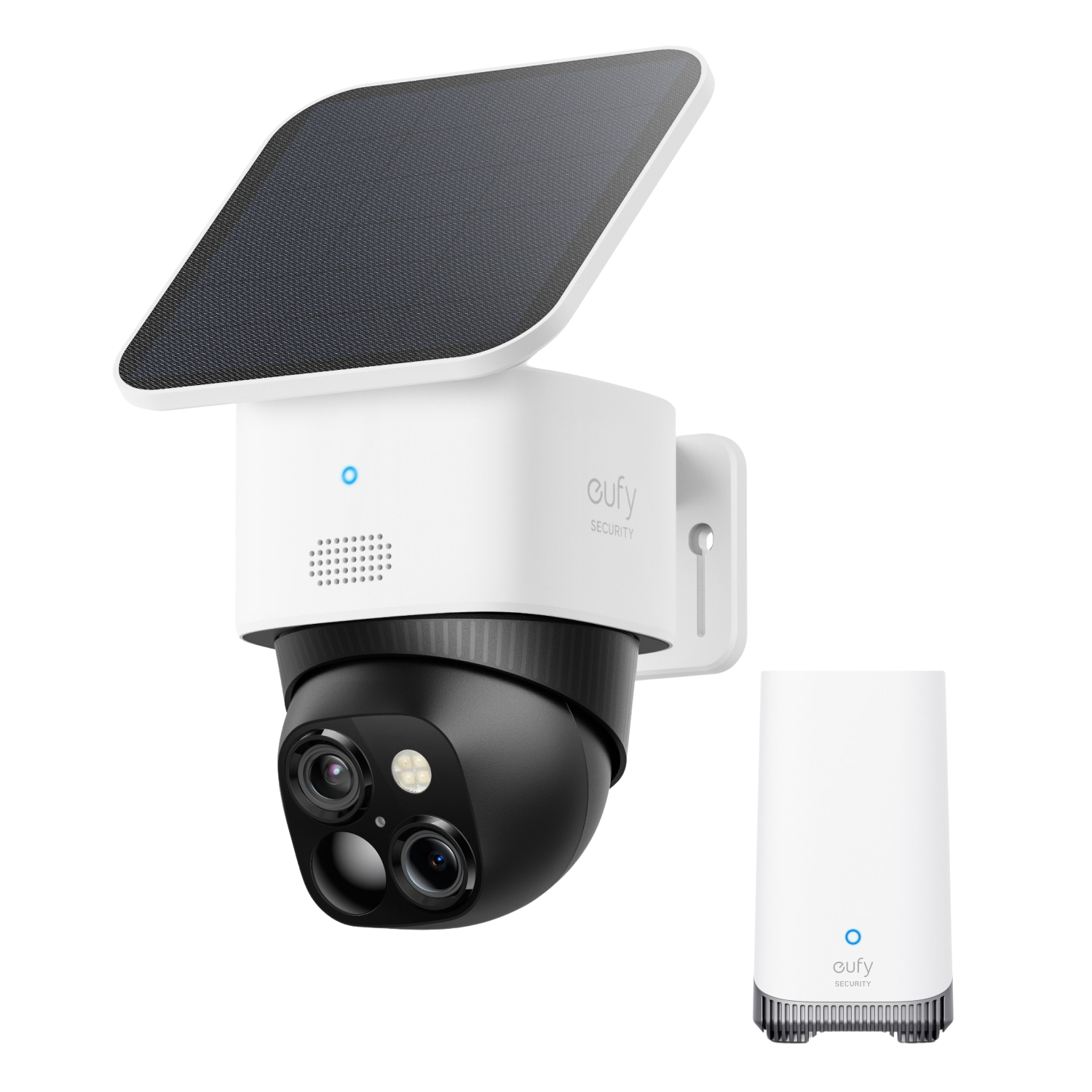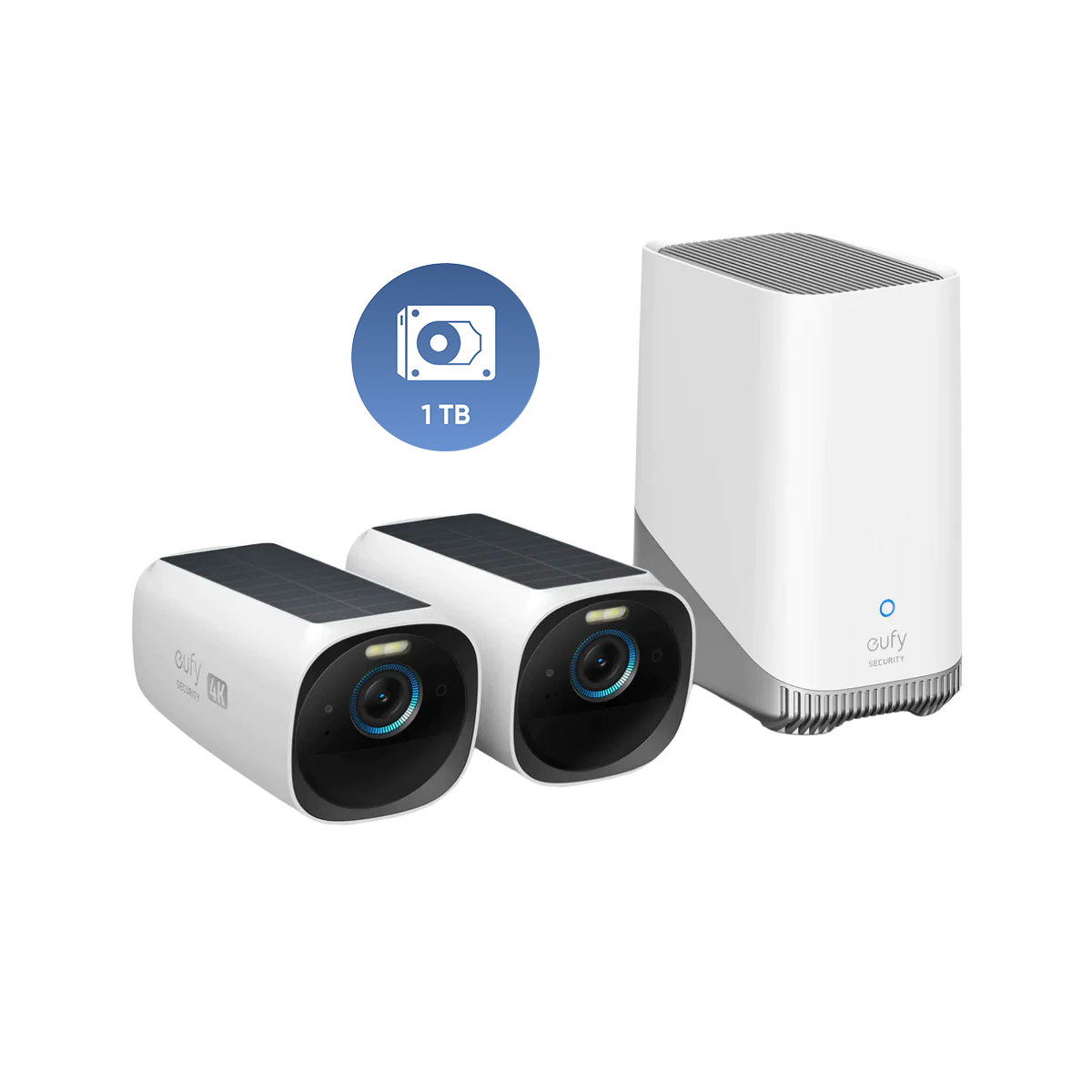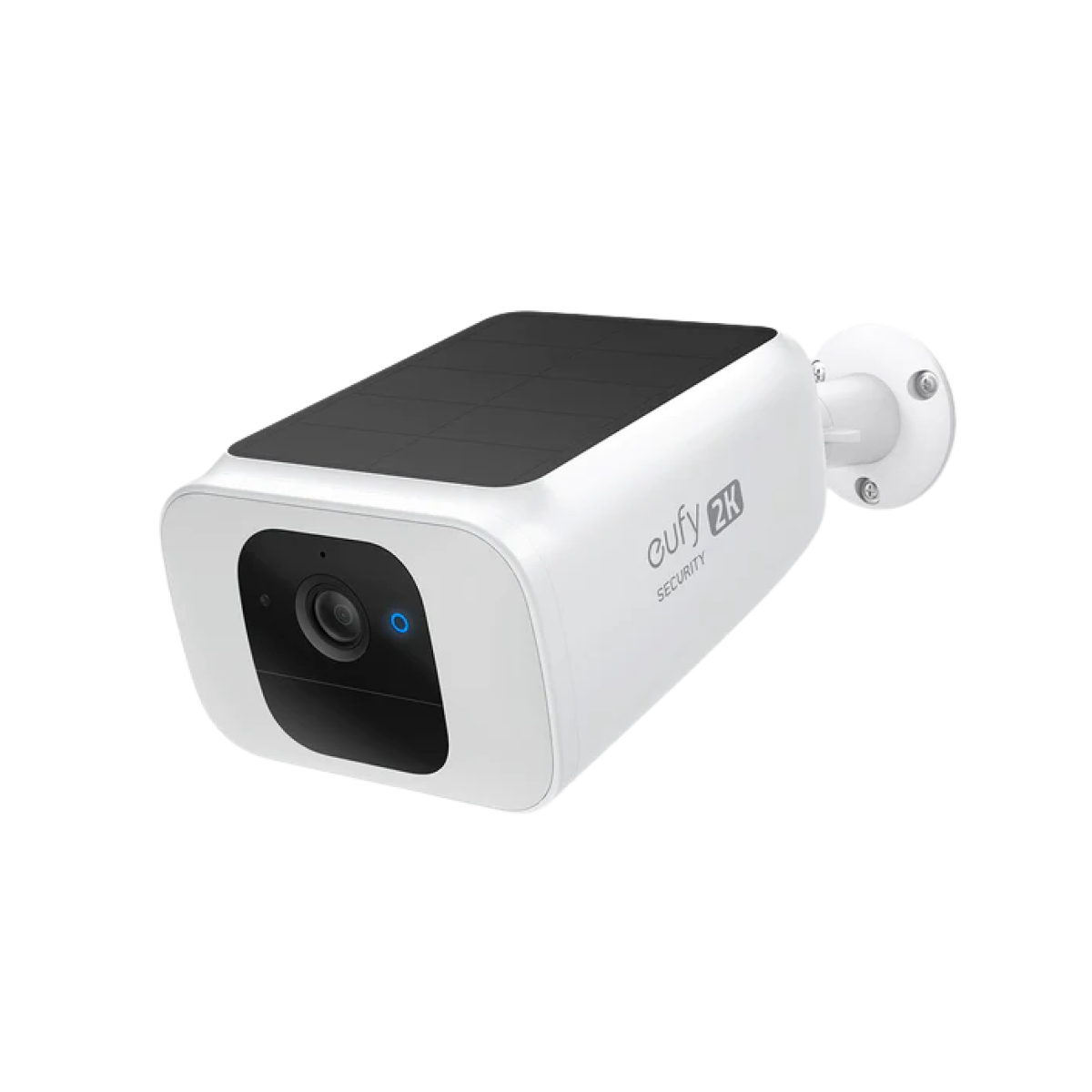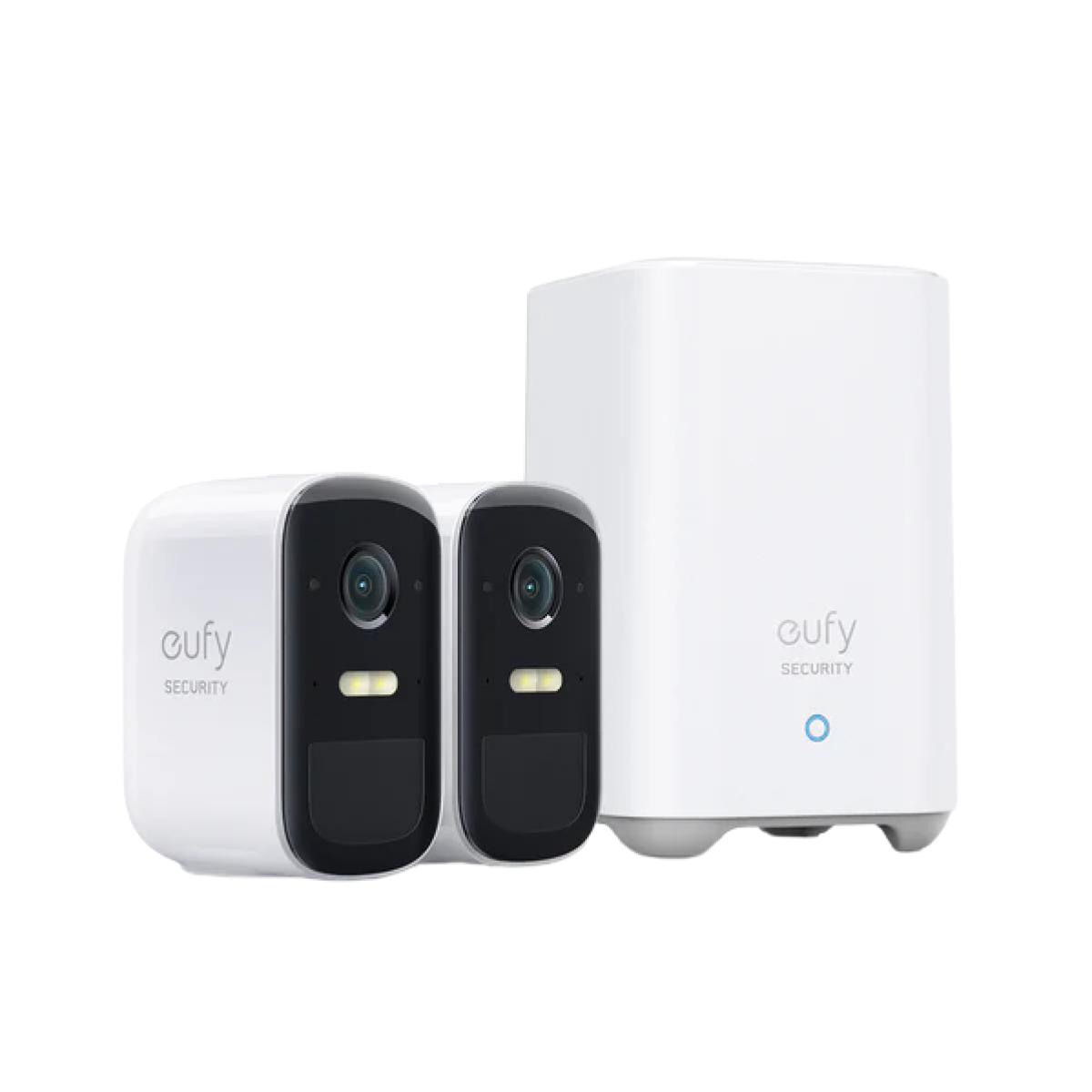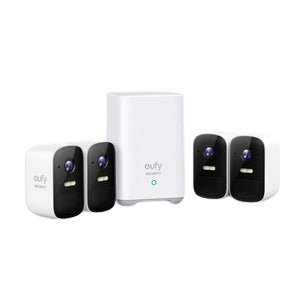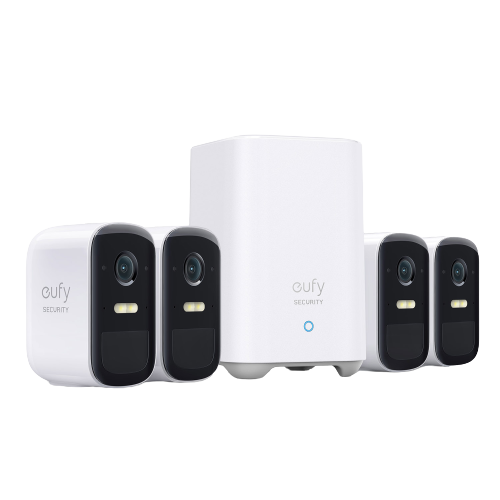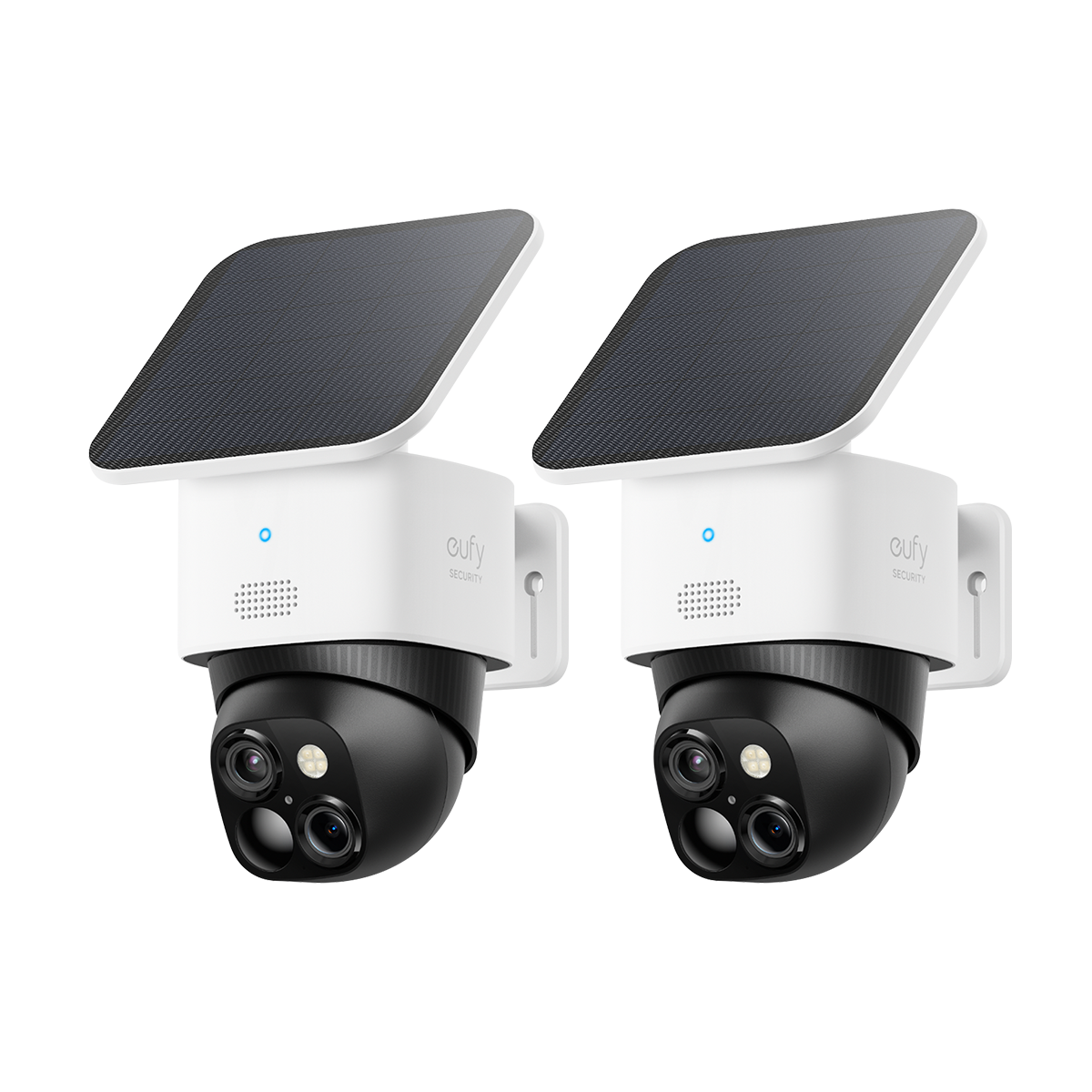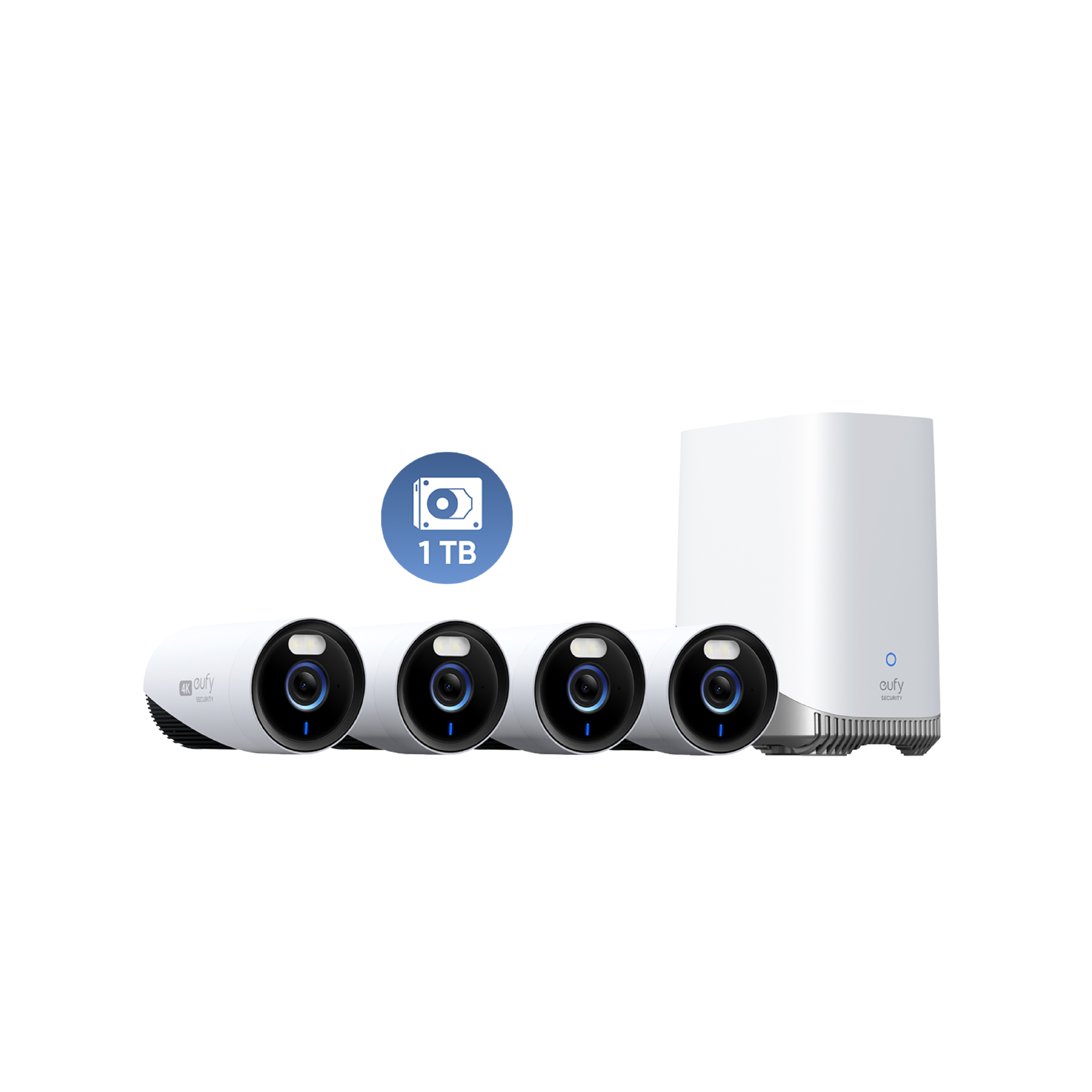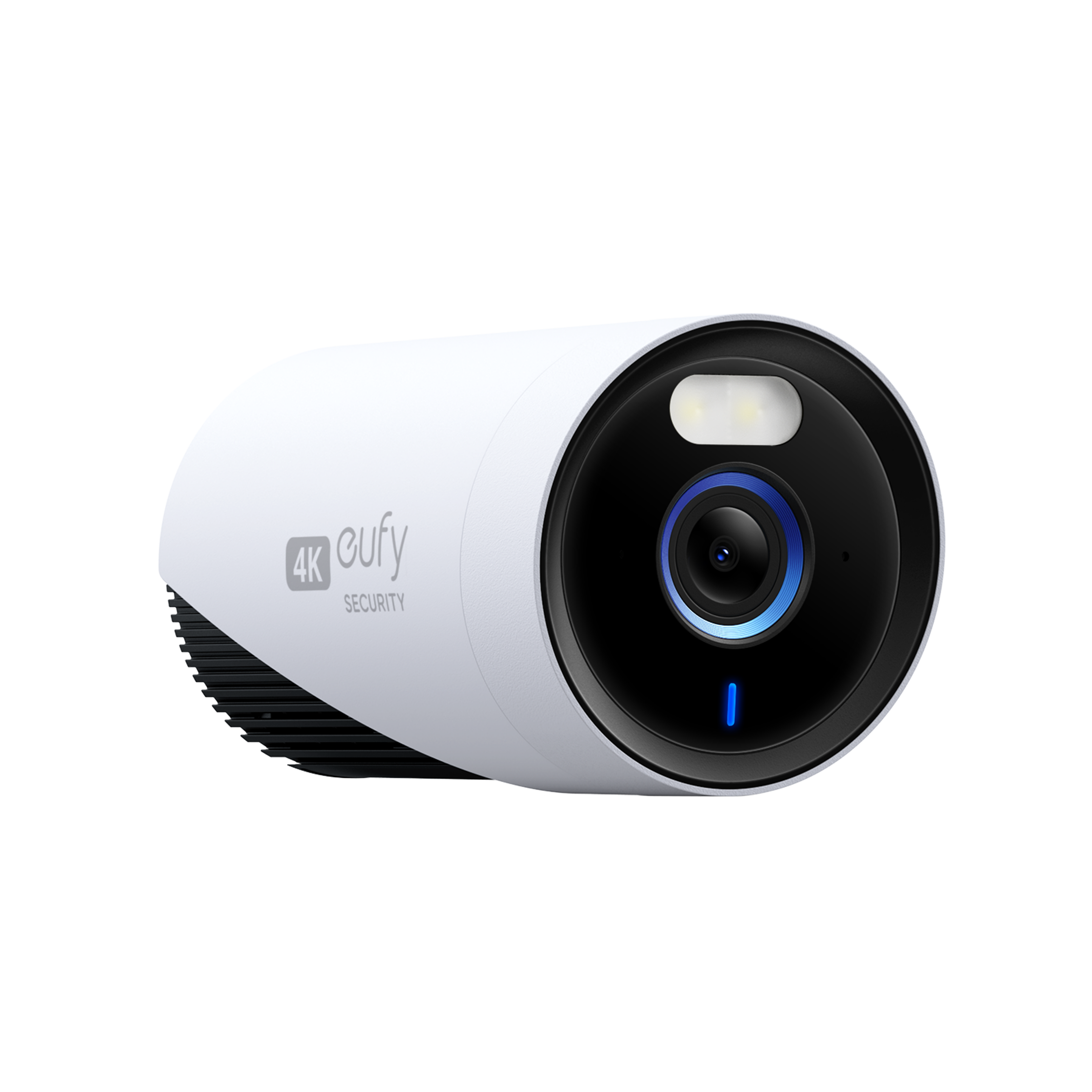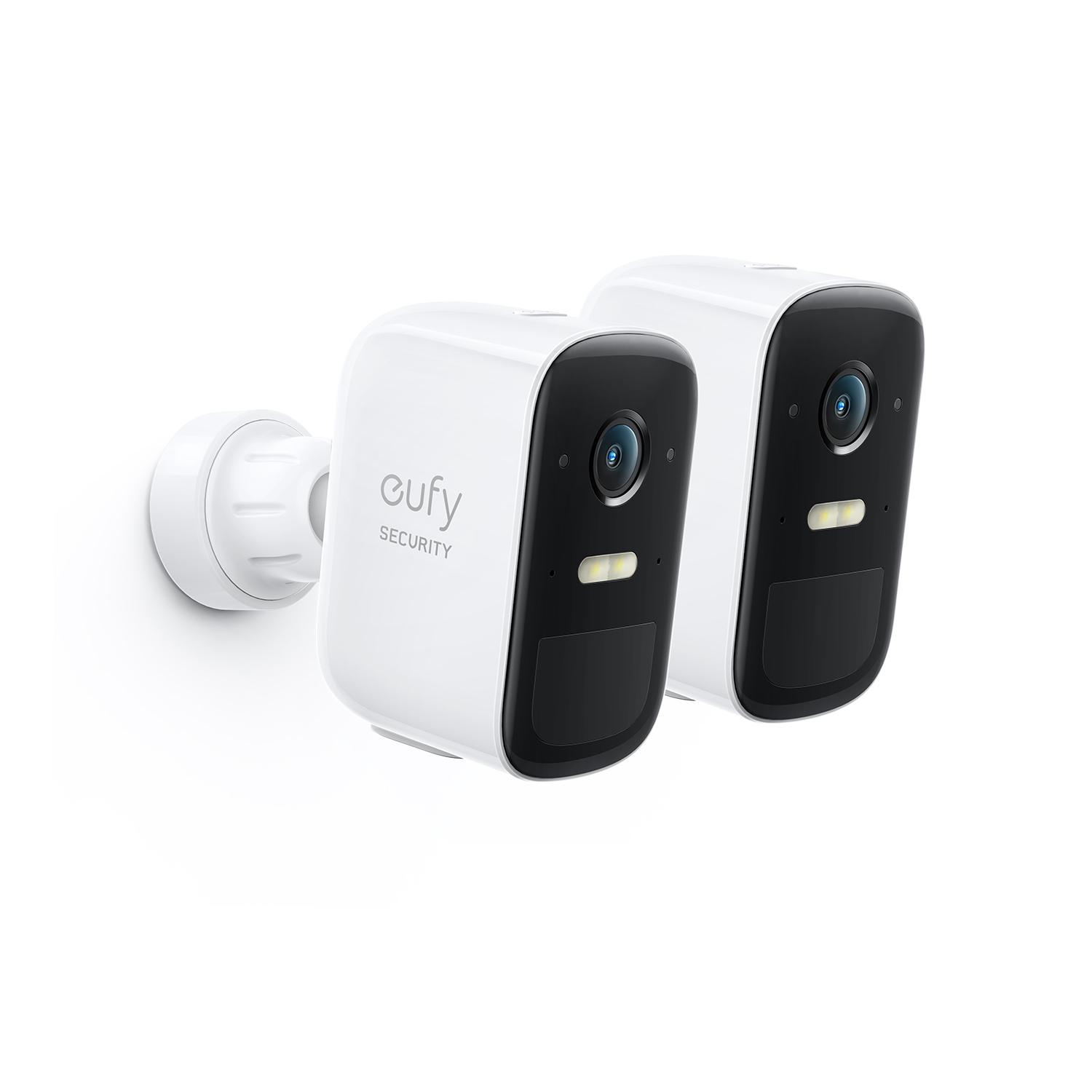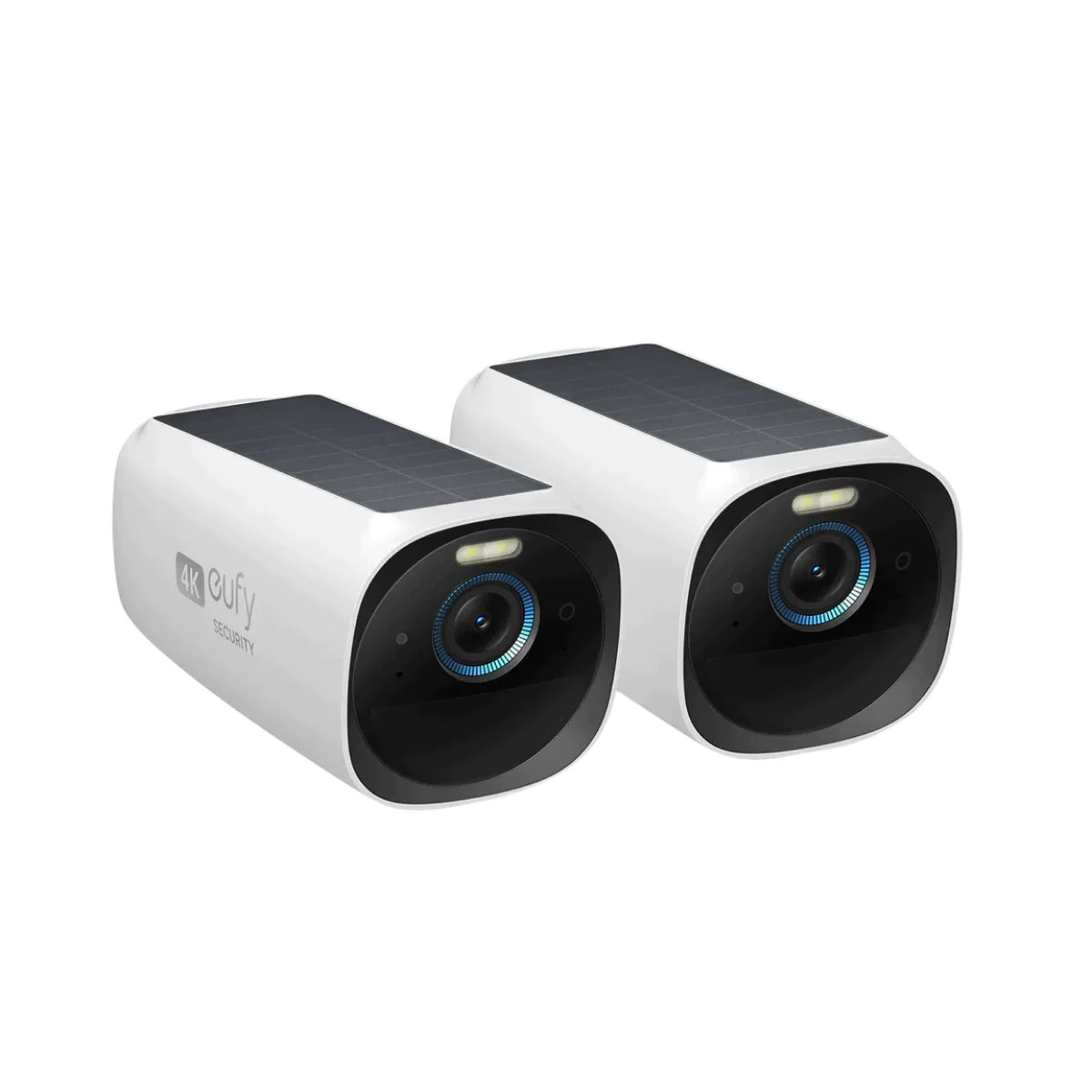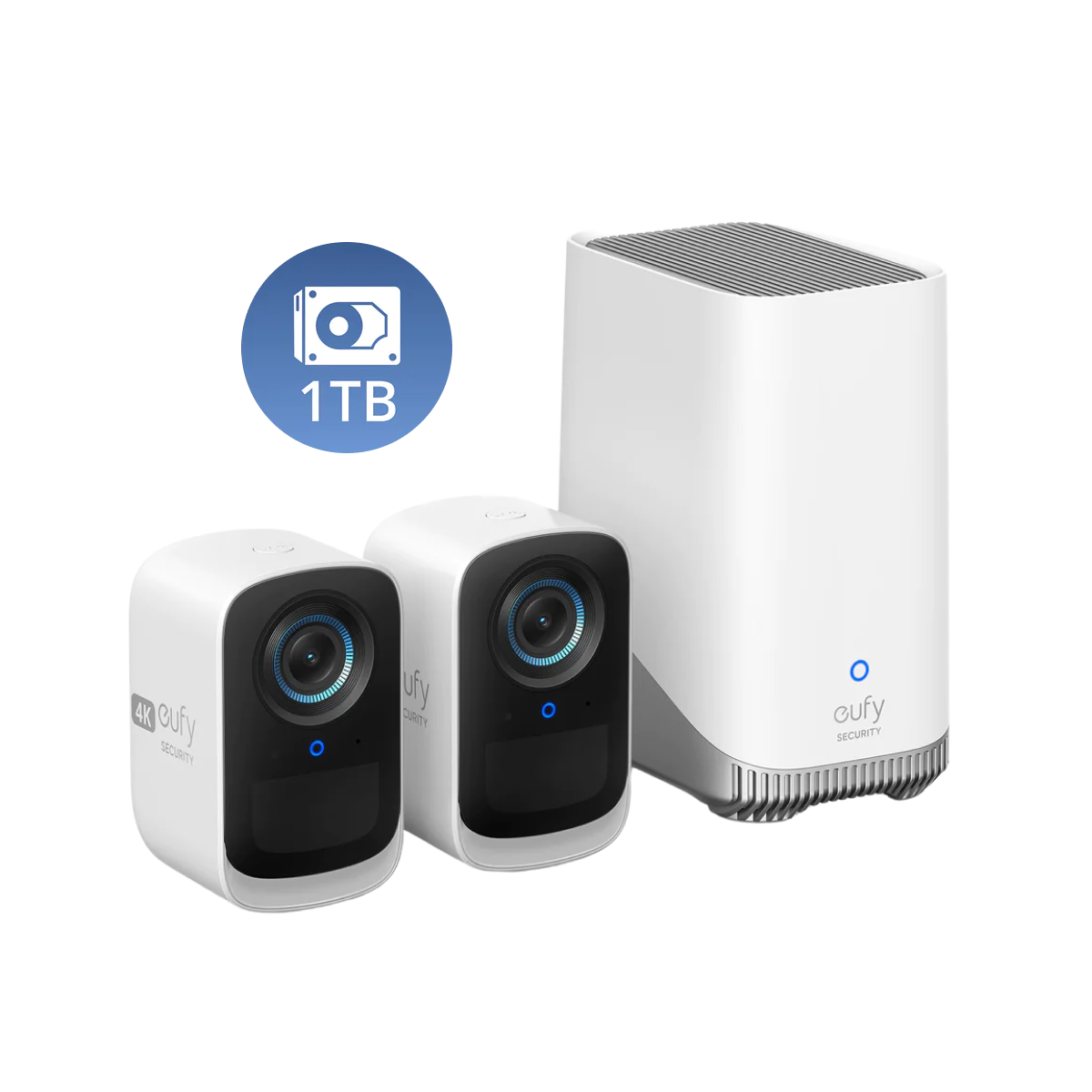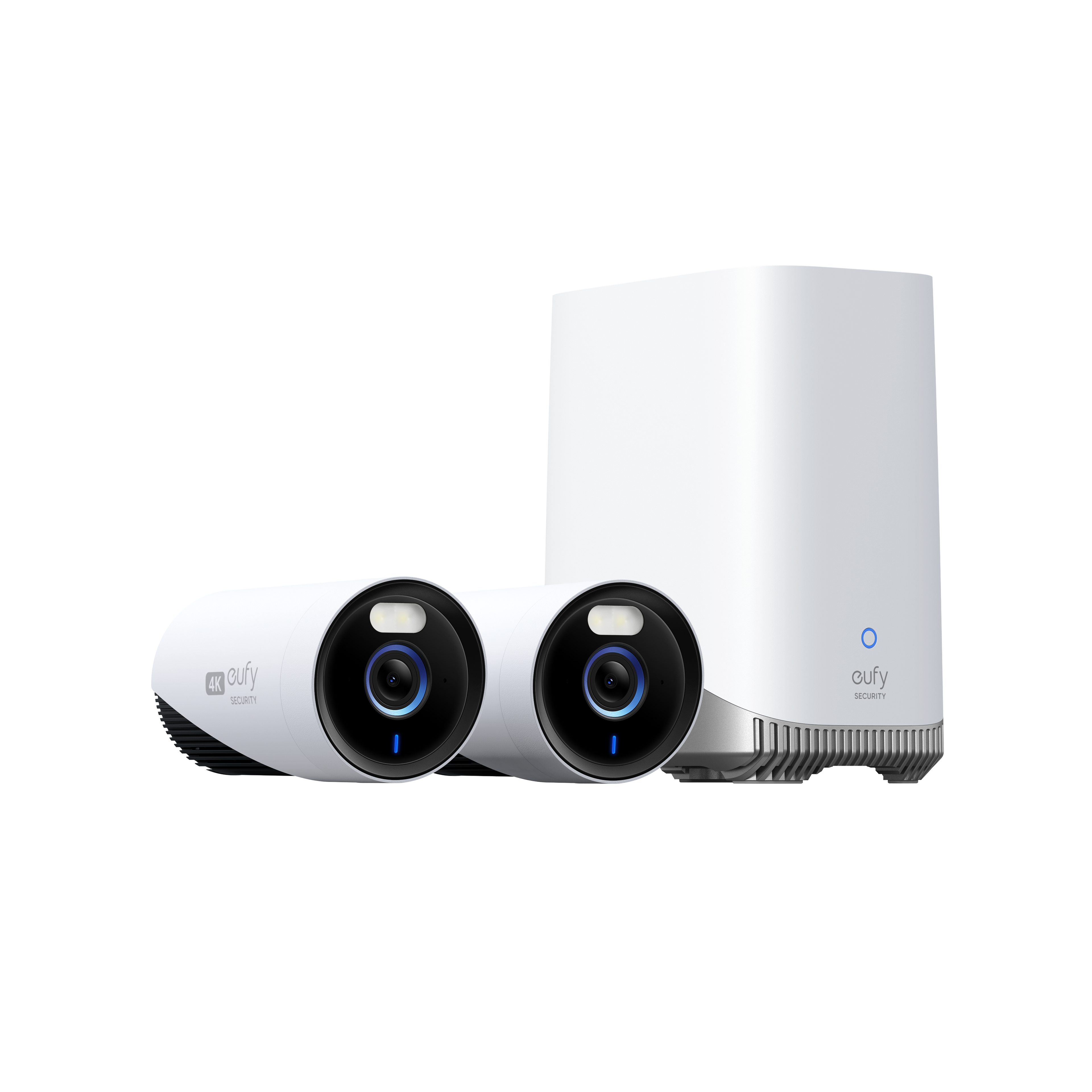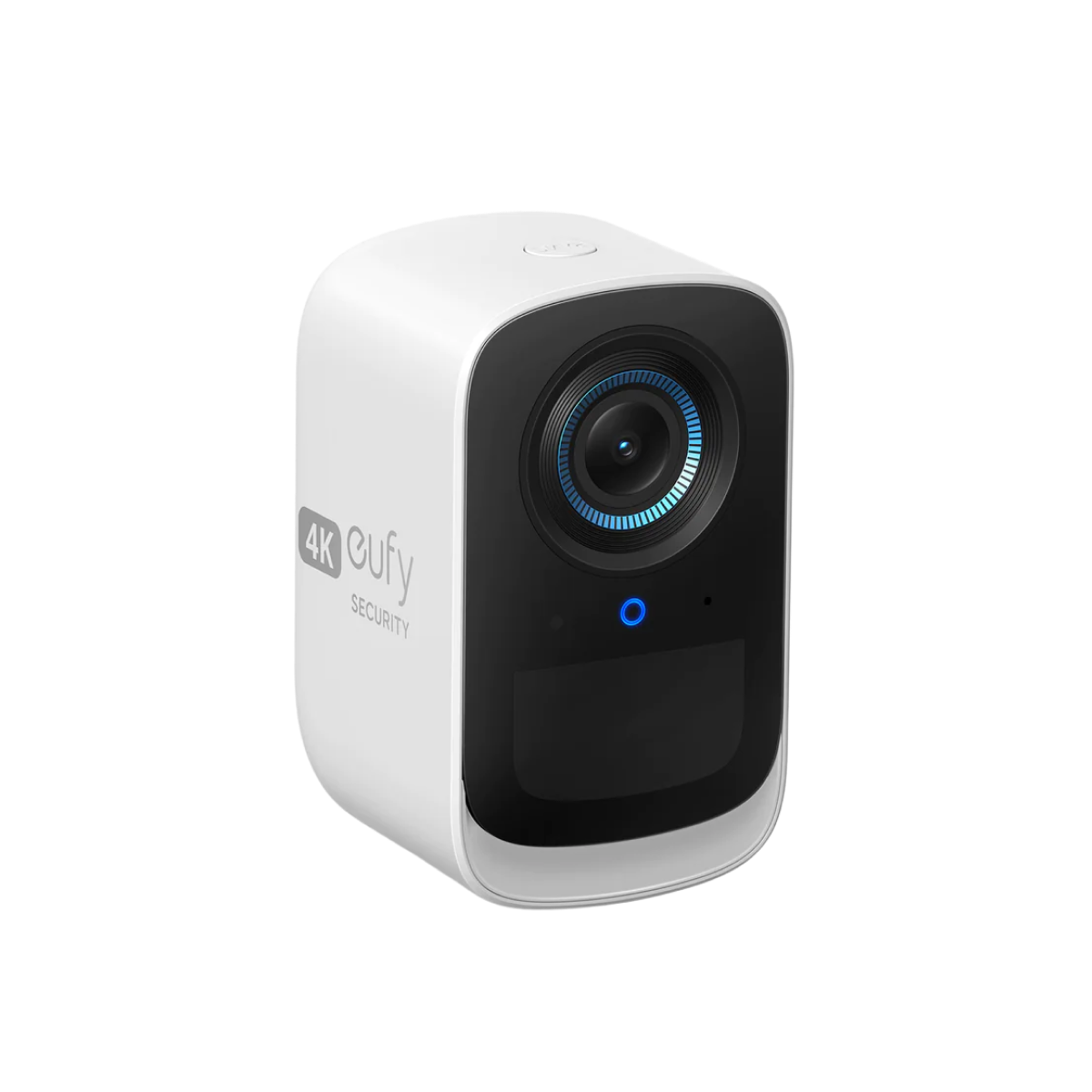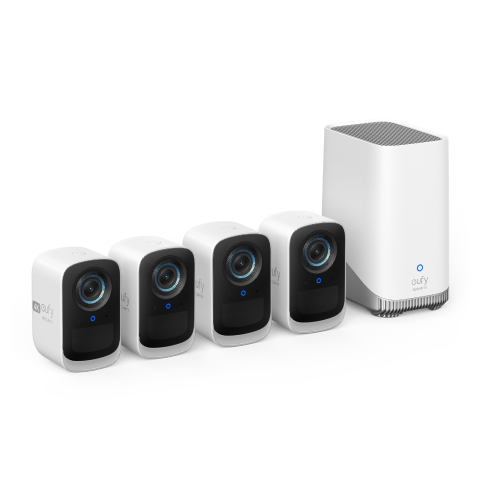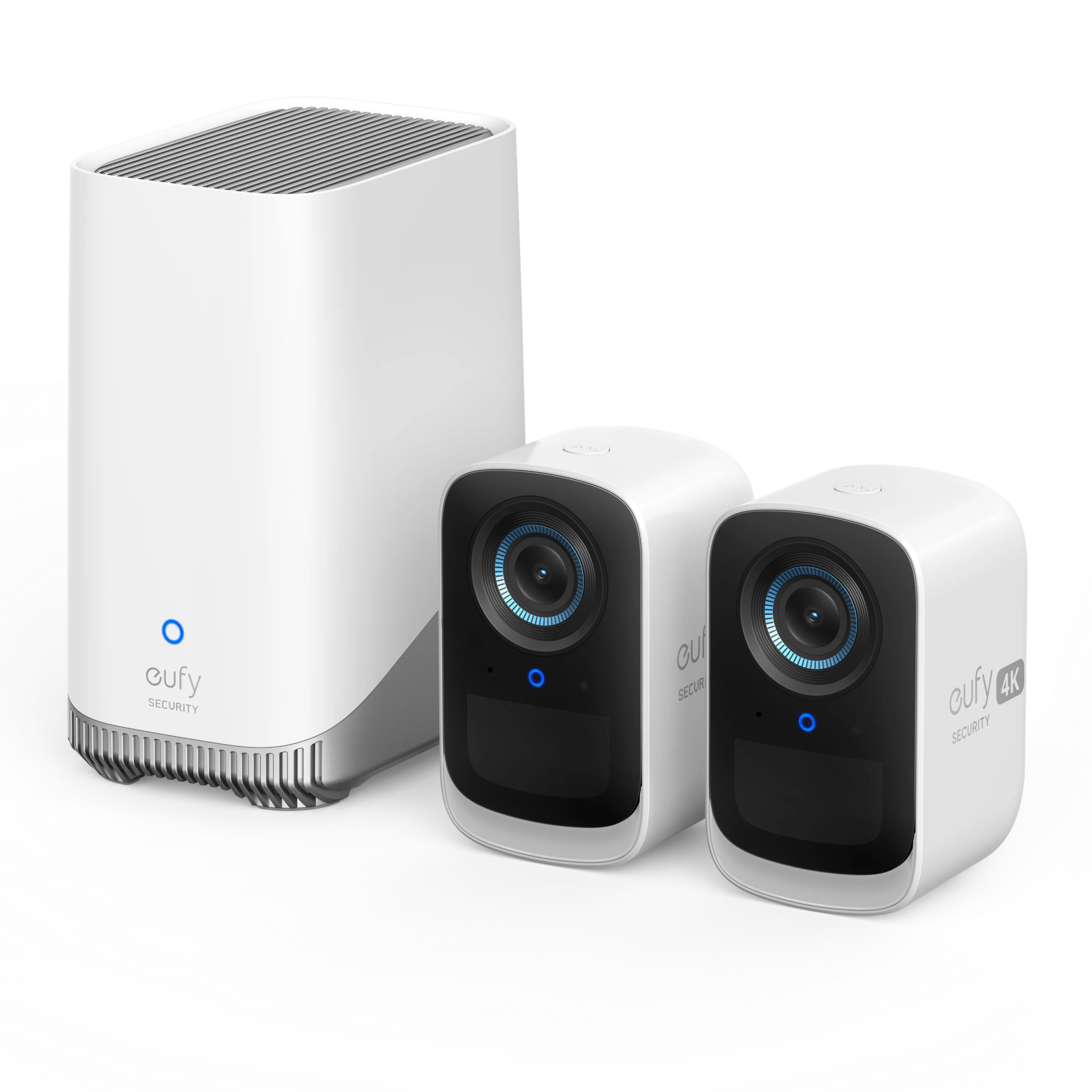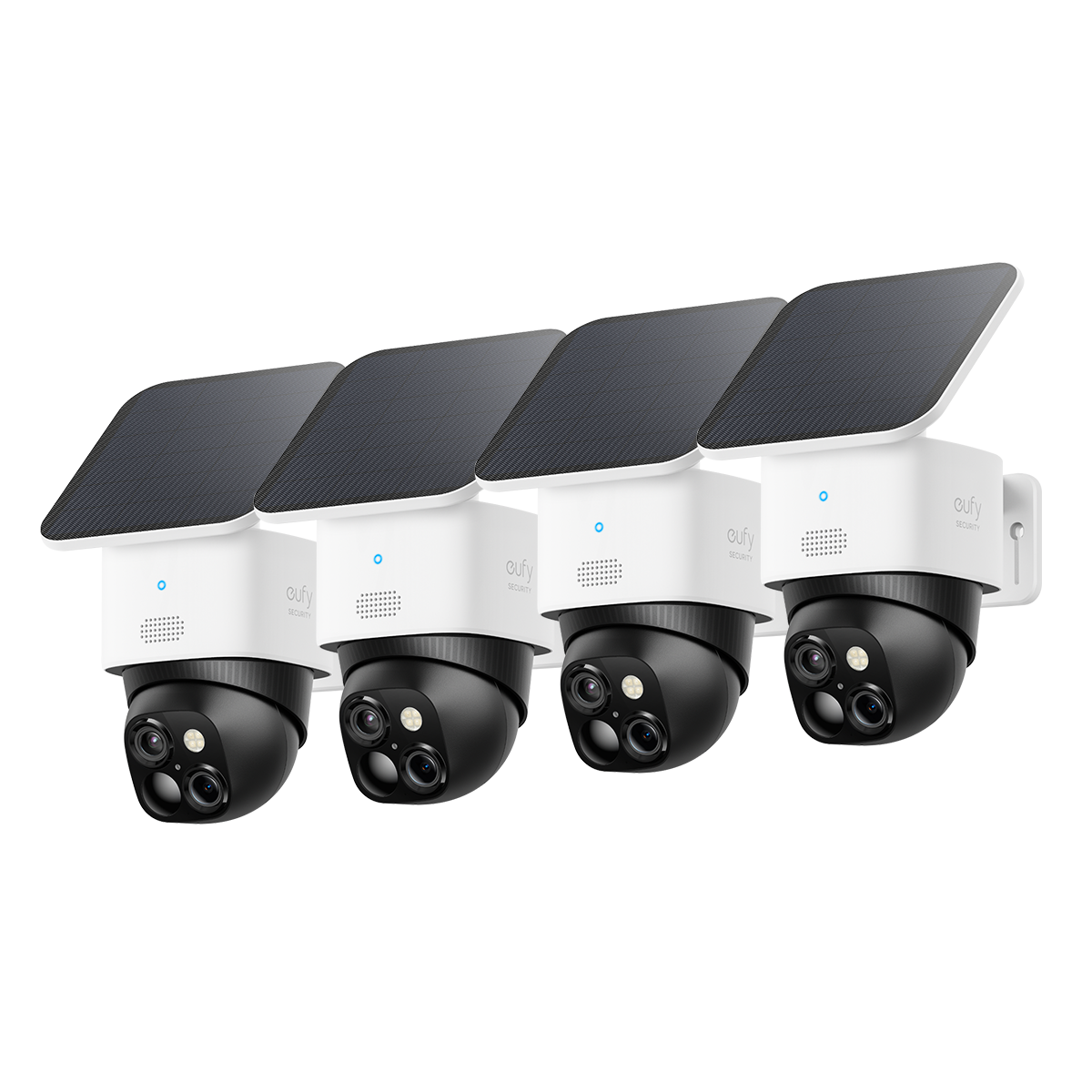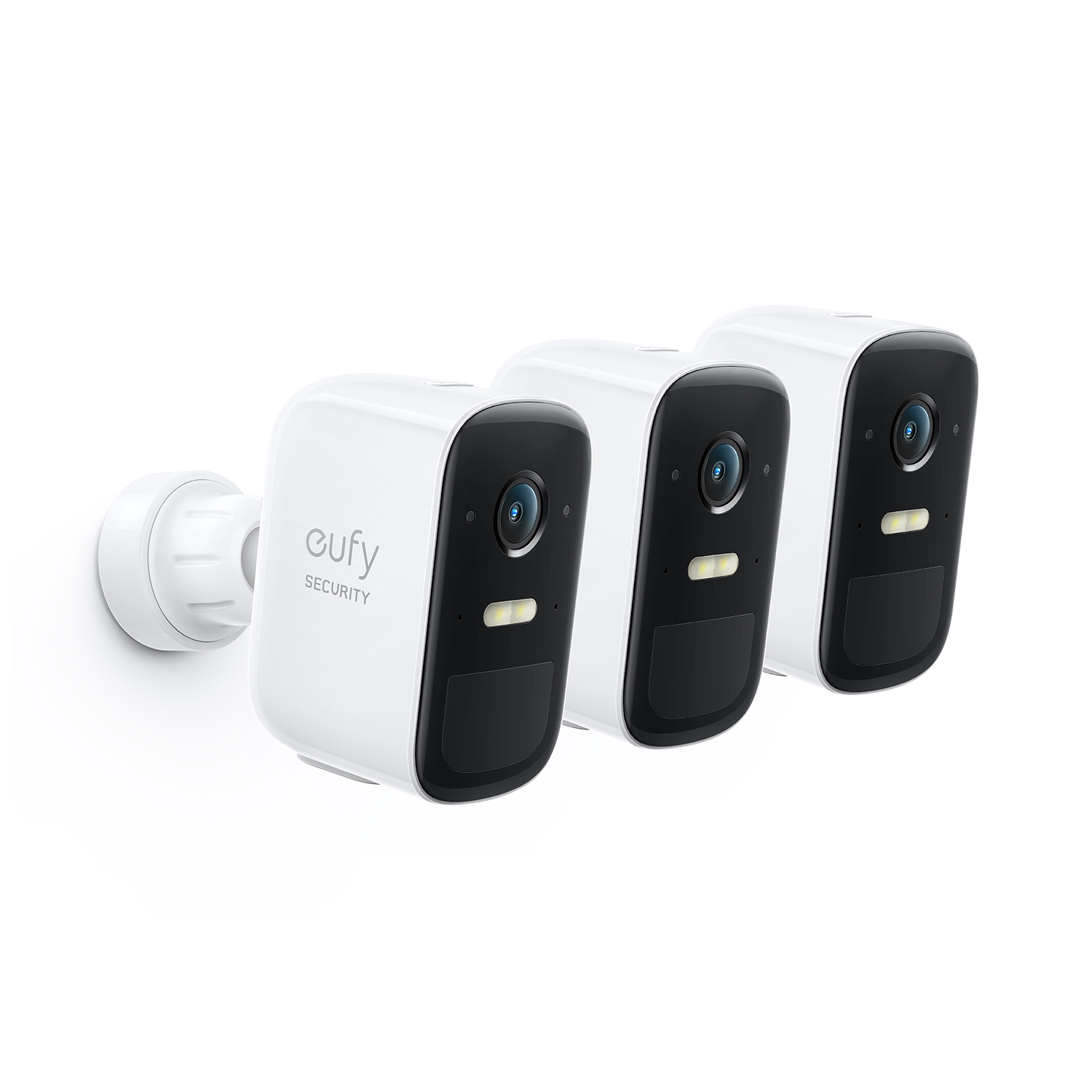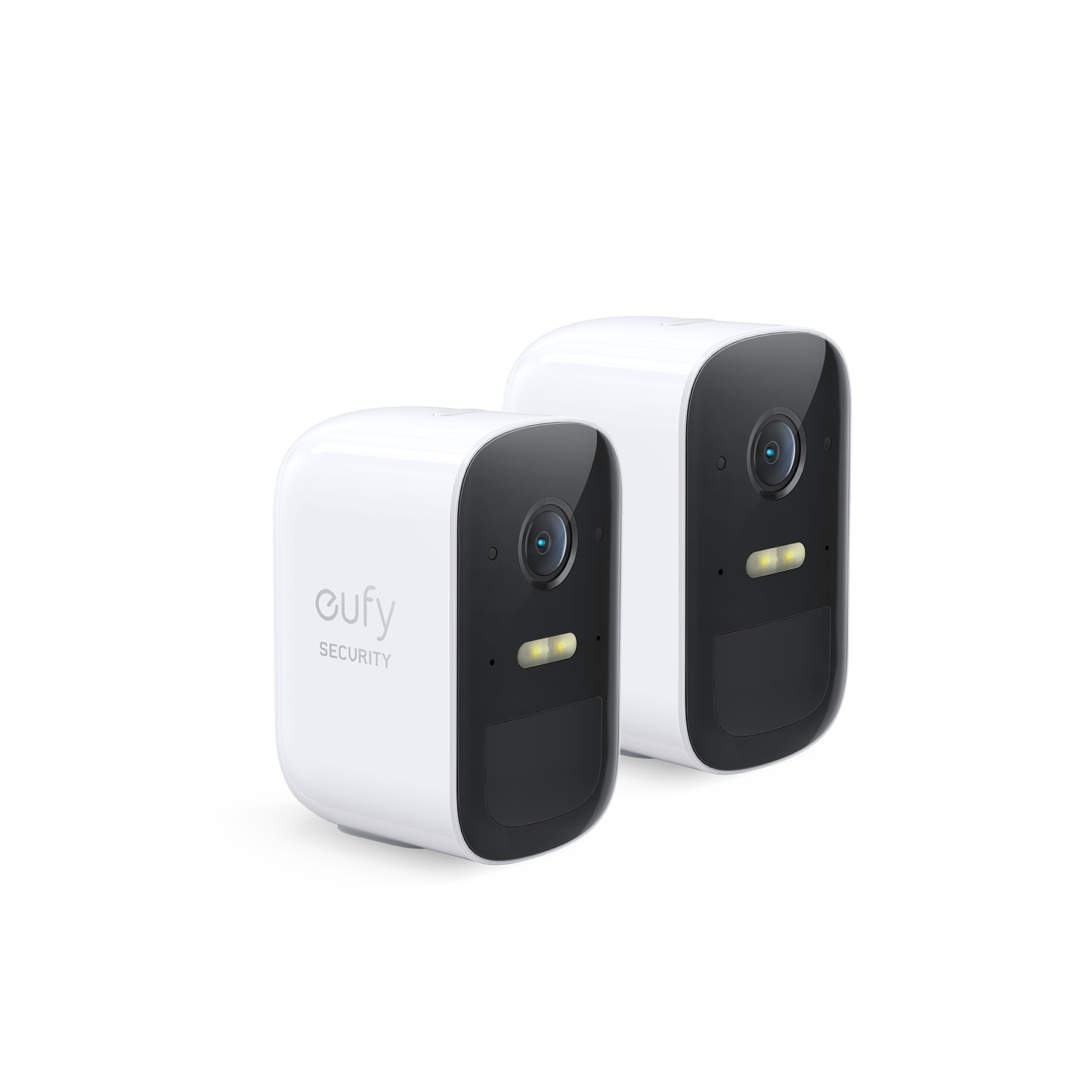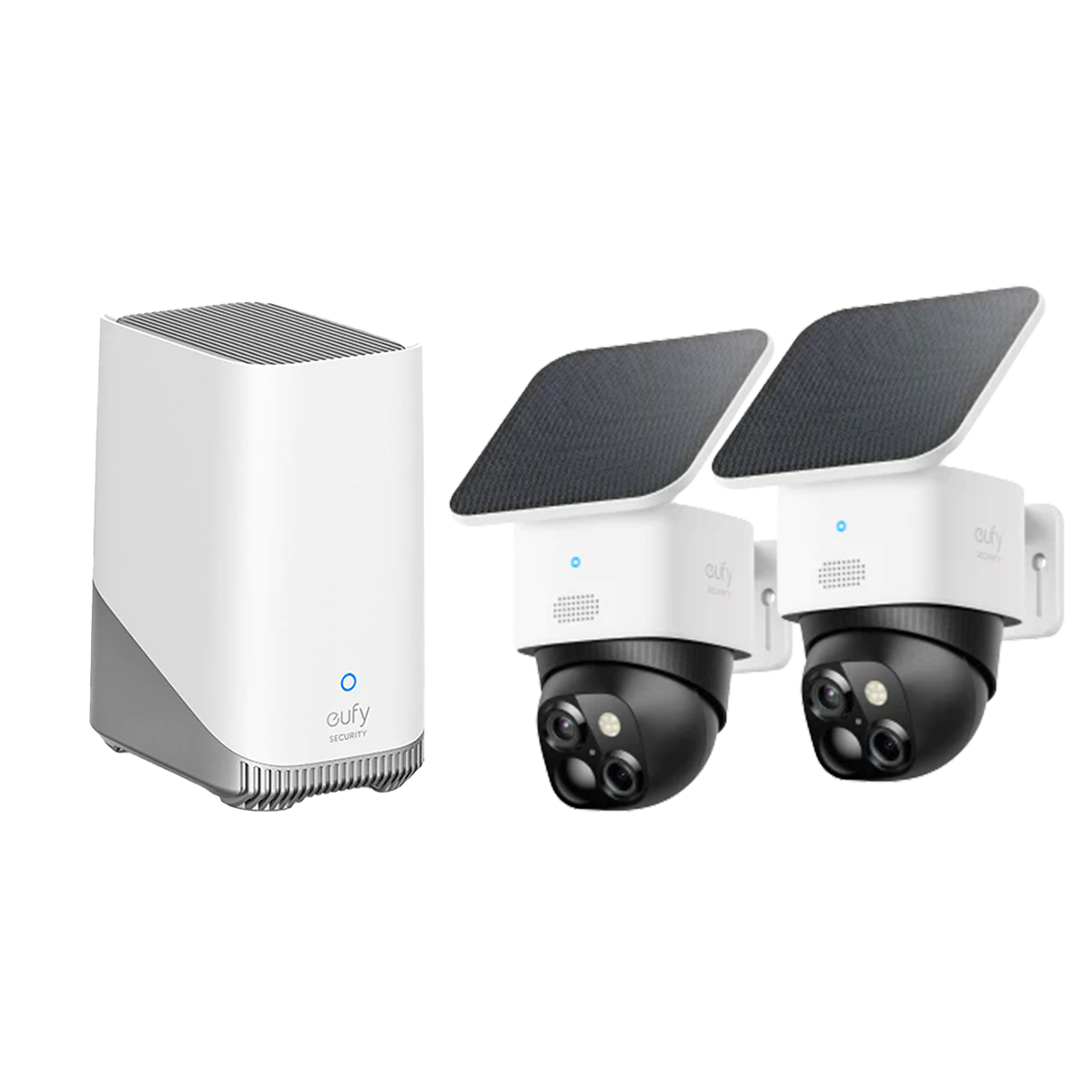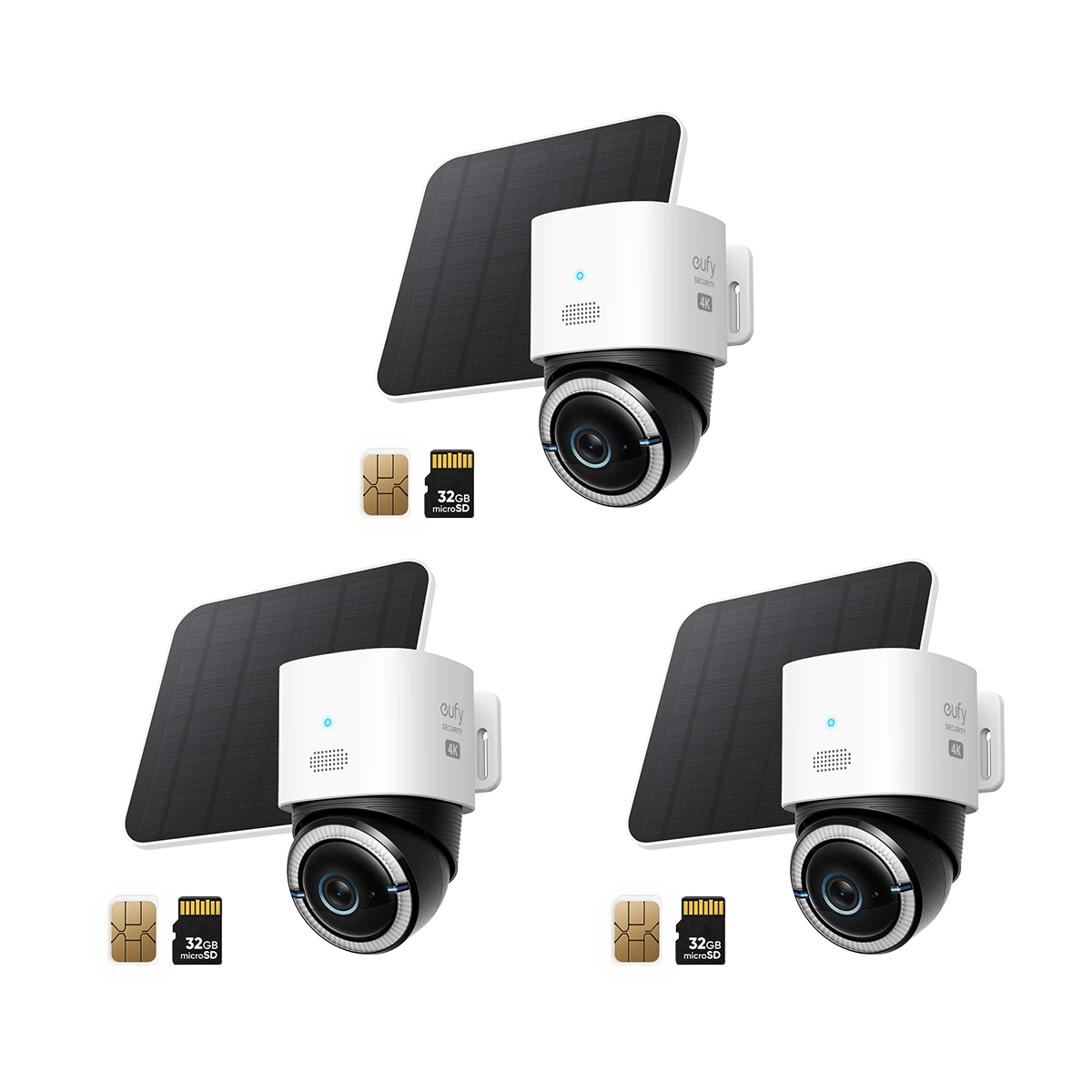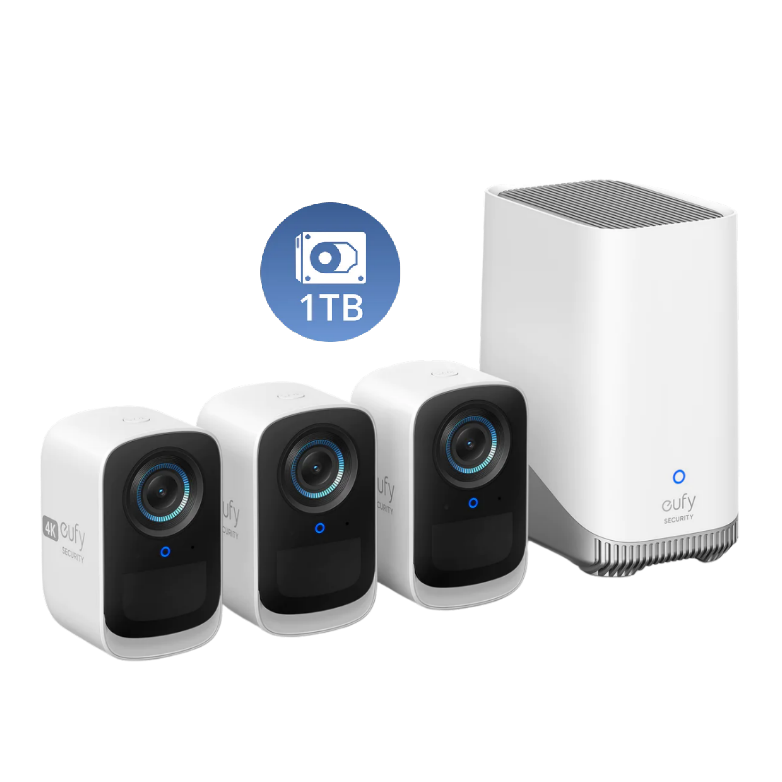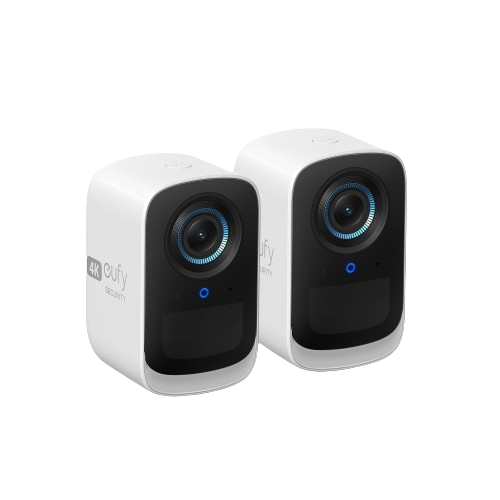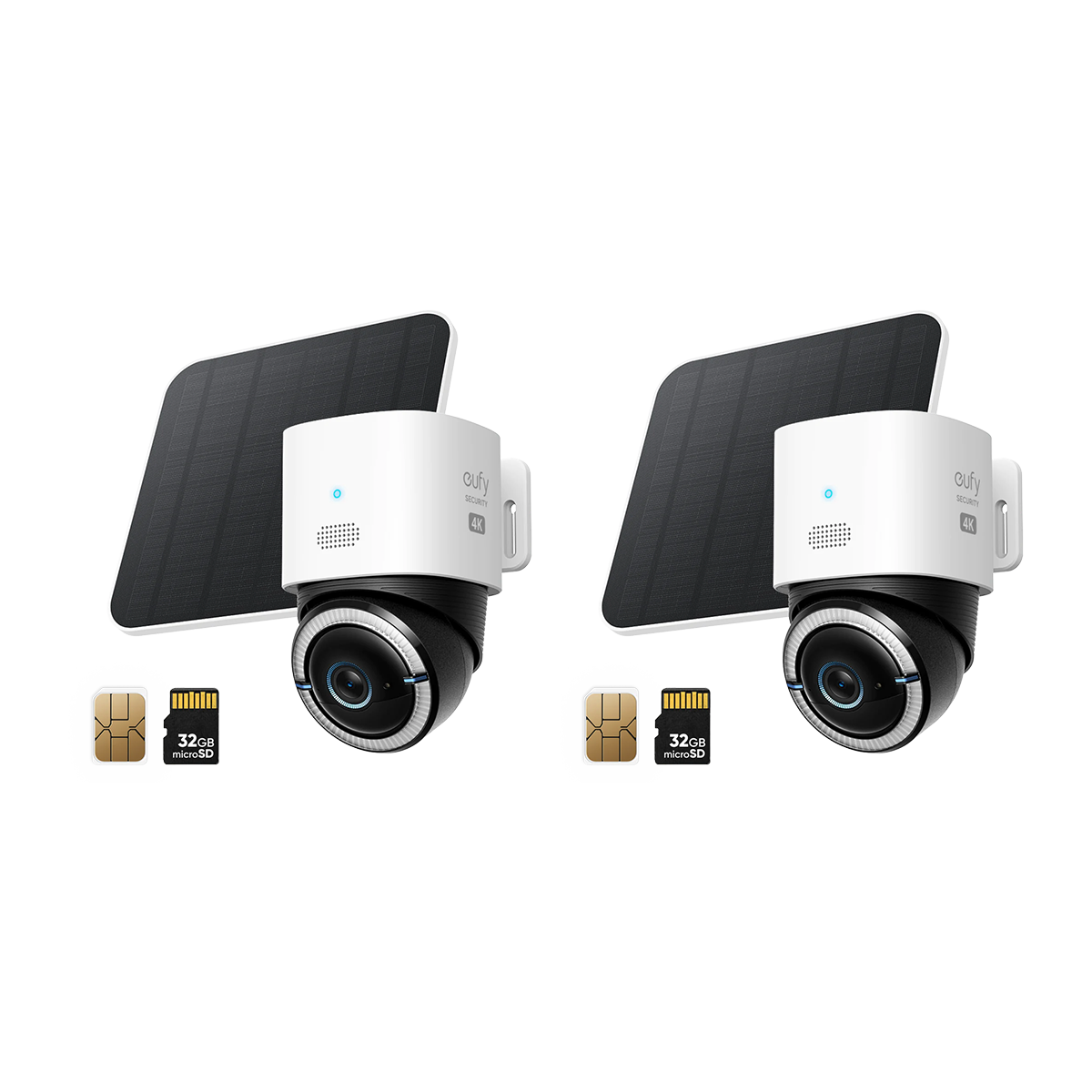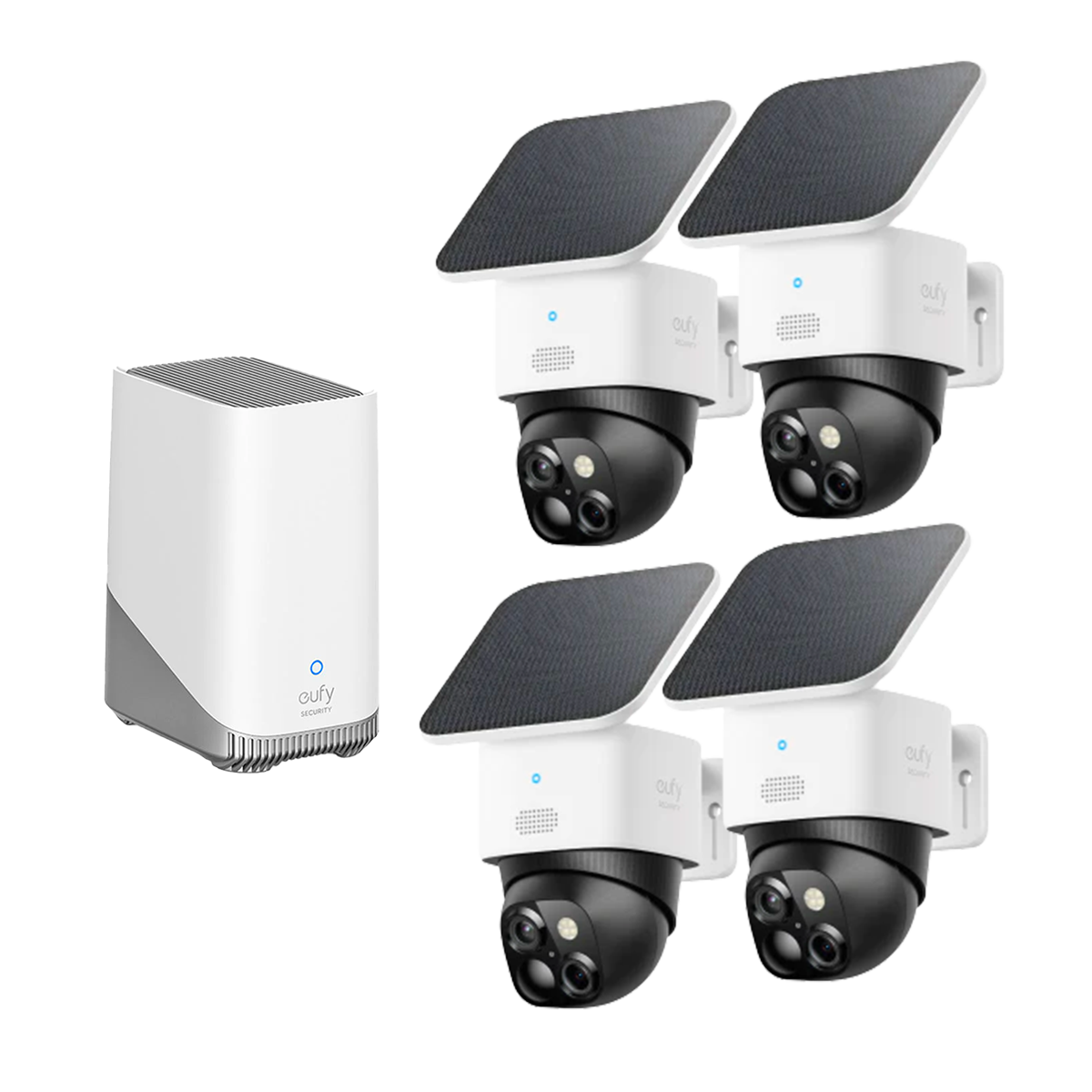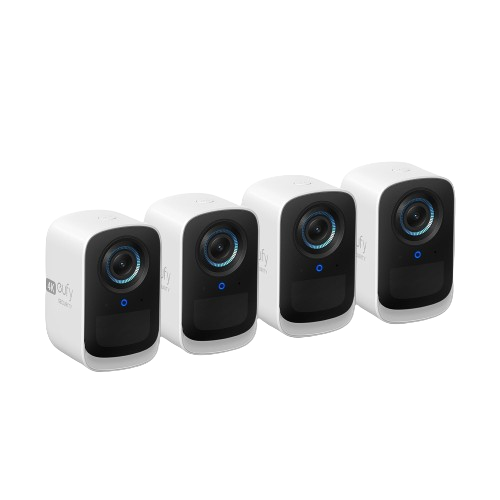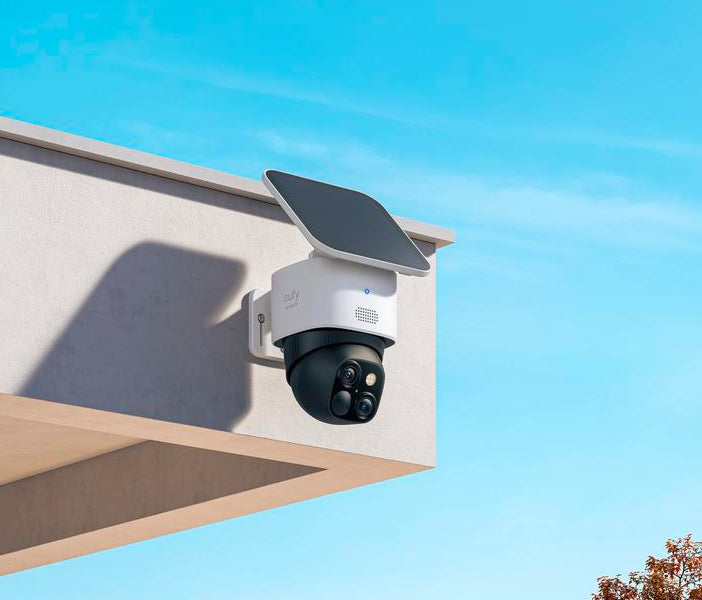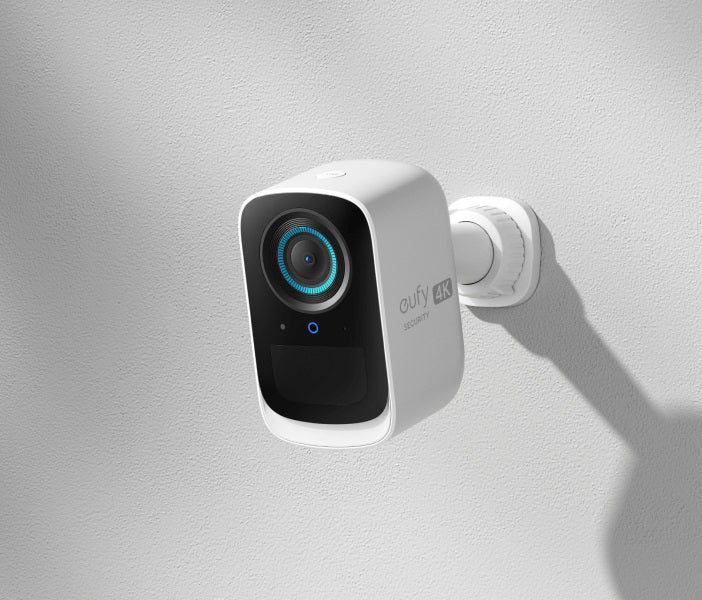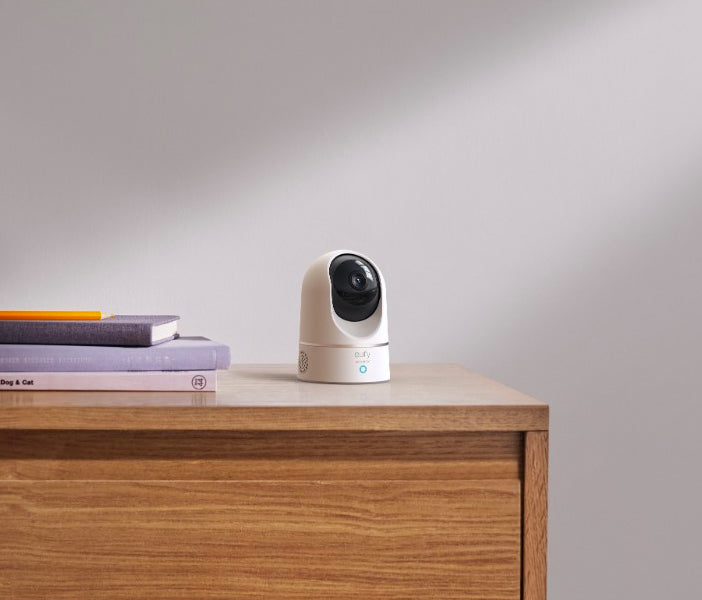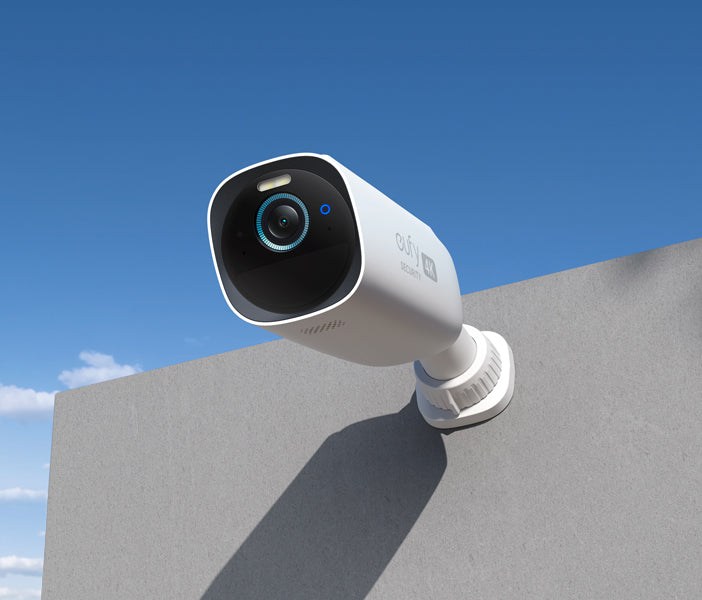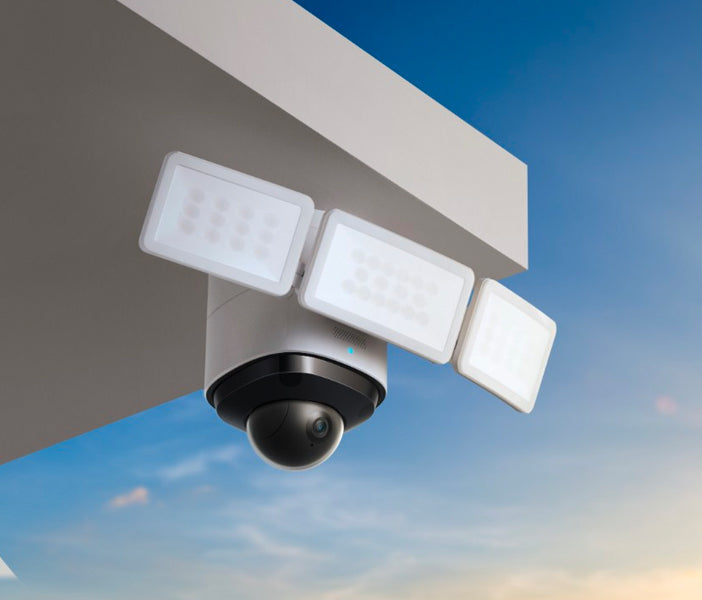Wireless Security Cameras
\49Item(s) Found- Most Recommended
- Newest Arrivals
- Price (Low to High)
- Price (High to Low)
What Benefits Can eufy Wireless Security Cameras Offer?
Crystal Clear Protection, 24/7: eufy home security cameras wireless, such as the eufy 4G LTE Cam S330, deliver up to 4K stunning resolution, ensuring crystal-clear footage. With advanced colored night vision capabilities, our wireless security cameras provide continuous protection, day or night, so you can always stay informed about your home’s security.
Effortless Smart Integration, Hands-Free Control: eufy’s best wireless security cameras work seamlessly with smart home systems like Google Assistant and Alexa. This integration makes managing your security system as easy as issuing a simple voice command, giving you hands-free control for ultimate convenience.
Freedom to Place Anywhere: Wireless and quick to install, eufy security camera wireless security cameras like the SoloCam S220 can be set up in just 5 minutes. With no need for wiring, you have the flexibility to place those portable cameras wherever they’re most needed, enhancing your home security with minimal effort.More Features on eufy Wireless Security Cameras
Solar Panel Integration: Some of eufy’s wireless cameras for house, like the SoloCam S340, feature built-in solar panels, providing a green, sustainable way to power your camera. Just 2 hours of sunlight can power your outdoor wireless security camera for a whole day, reducing the need for frequent charging and making it more energy-efficient.
AI-Powered Motion Detection: eufy’s wireless security systems feature advanced AI technology that differentiates between humans, pets, and objects. This intelligent motion detection minimizes false alarms and ensures you receive accurate alerts, allowing you to focus only on genuine security events for a more efficient monitoring experience.
Activity Zones: eufy wireless cameras allow you to set specific activity zones via the eufy Security app for targeted monitoring. By focusing on the most important areas, you can fine-tune your security settings, ensuring you only get alerts for the activity that matters most.FAQs
How do wireless security cameras work?
Wireless security cameras utilize Wi-Fi or other wireless technologies to transmit video and audio signals to a receiver or a network. They require a power source, typically through a power cord or batteries, and connect to a wireless network for data transmission. Then, the wireless security camera system can capture video footage, which is then compressed and sent wirelessly to a receiver or a cloud-based storage system. Users can access the live feed or recorded footage remotely through a mobile app or web interface.
Do you need Wi-Fi for wireless cameras?
No, Wi-Fi is not always required for wireless home security cameras. While most wireless home camera systems utilize Wi-Fi for data transmission, alternative wire free security camera technologies like cellular networks, Bluetooth, RF signals, or point-to-point wireless connections are also available. These wireless surveillance cameras are useful in areas with limited Wi-Fi coverage or when a Wi-Fi network is not available.
How to install wireless security cameras?
Here are the general steps to install wireless security cameras for home:
1. Plan where to place the camera.
2. Check to ensure your camera is within Wi-Fi or other network coverage.
3. Power your wireless indoor outdoor security cameras with batteries or a power outlet.
4. Follow the manufacturer's instructions to mount your no wires security cameras securely.
5. Follow the camera's setup instructions to connect it to your Wi-Fi or other networks.
6. Test your wireless indoor security cameras to ensure they are functioning properly.
7. Install the mobile app if your camera supports it for easy monitoring and setting.
8. Regularly monitor your wireless smart camera and perform necessary maintenance.What is the difference between wireless camera and Wi-Fi camera?
The main difference between a wireless camera and a Wi-Fi camera lies in their connectivity. A completely wireless security camera operates without physical cables, utilizing varied wireless technologies like Wi-Fi, cellular networks, RF signals, or Bluetooth for data transmission.
In contrast, WiFi security cameras specifically rely on Wi-Fi connectivity to transmit video and audio signals over a local Wi-Fi network. However, Wi-Fi cameras are the most popular choice of wireless indoor outdoor security camera systems for flexible installation and wire-free remote access.How do wireless security cameras get power?
Wireless security cameras get power in a 2 different ways:
1. Battery-Powered: Many wireless security cameras use rechargeable batteries, which require periodic charging. These cameras offer flexibility in placement since they don’t need to be near a power outlet.
2. Solar-Powered: Certain models come with solar panels that recharge the camera’s battery using sunlight. This option is ideal for outdoor use or areas with ample sunlight, reducing the need for frequent battery changes or electrical wiring.Do I need a router for a wireless security camera?
For wireless security cameras with WiFi connection, you will need a router, as these cameras rely on your home’s WiFi network to connect to the internet, stream live video, and enable remote access through smartphone apps or web interfaces. In contrast, non-WiFi wireless cameras, which use alternative technologies such as radio frequencies or cellular networks, might not require a traditional router.
Do wireless security cameras need to be plugged in?
This depends on how your wireless security camera gets power. While wireless security cameras need no cables for the Internet, they need a continuous power supply to operate. Some wireless home security cameras need to be plugged in while others get powered through a battery or solar charging. Check the specifications of your wireless security camera system for details.
Where should i place the wireless security cameras?
Indoor Placement: Install the cameras near main entryways like front and back doors, and in high-traffic areas such as living rooms and kitchens. Place cameras in hallways and staircases to monitor movement between floors and consider adding them to rooms with frequent activity for extra security.
Outdoor Placement: Position the wireless security cameras at front and back doors, driveways, and parking areas. Cover the backyard and garden, and mount cameras on high points to monitor the property’s perimeter and deter tampering. Ensure cameras are within Wi-Fi range or near power sources and are weather-resistant.What wireless security camera doesn’t have a monthly fee?
eufy’s wireless security cameras do not require a monthly fee for essential functionality. Our indoor or outdoor wireless cameras offer local storage options, such as microSD cards or HomeBase devices, to store footage without a subscription. While cloud storage is available for a fee, you can still enjoy full security features without ongoing costs.








